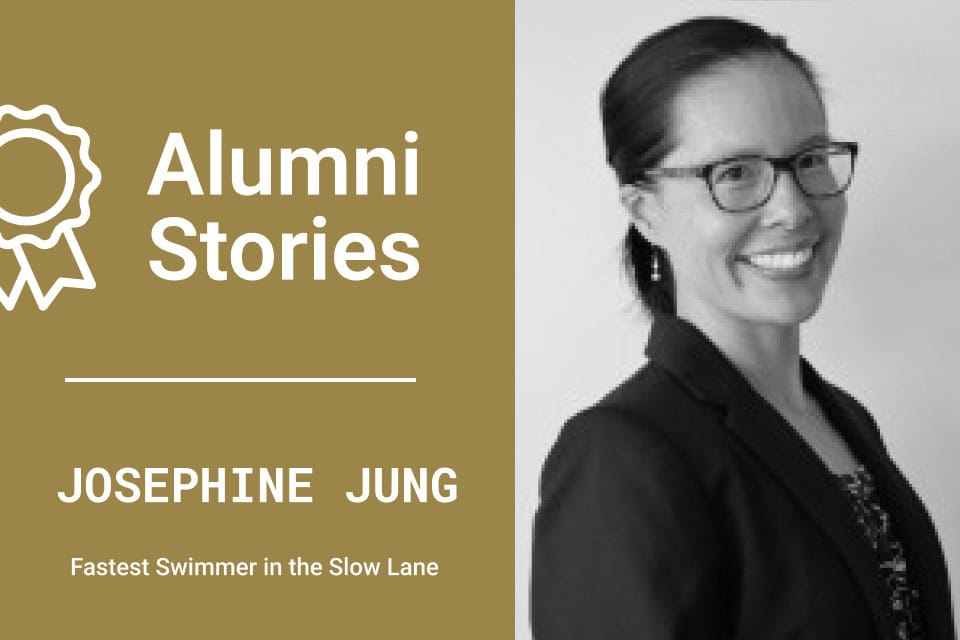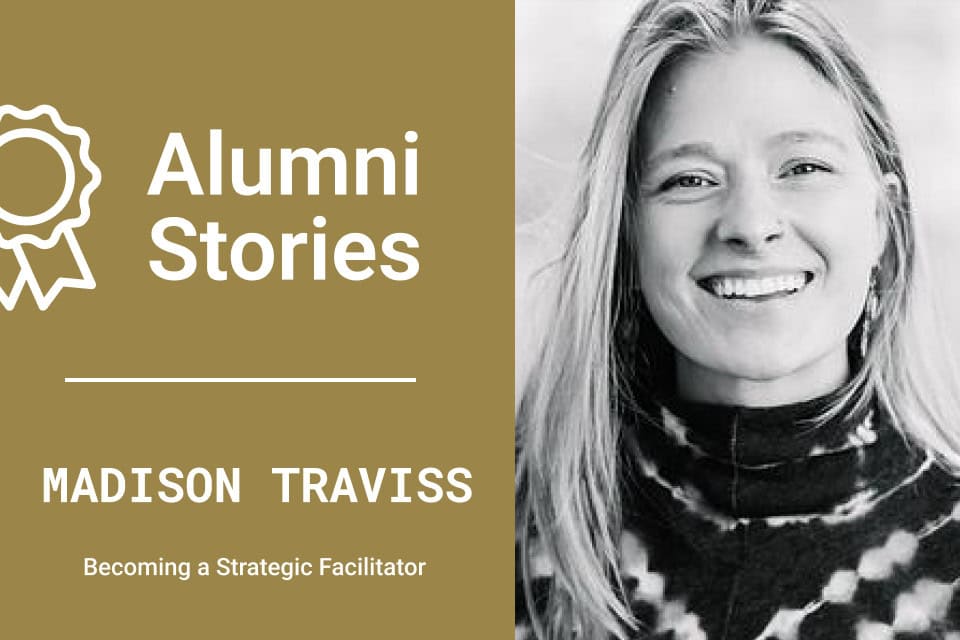From Classroom Creativity to Strategic Innovation
My career journey has been far from a straight path. It’s more of a connect-the-dots, where the picture isn’t clear until you step away and look back at the page. In 2022, as I was updating my resume for a career transition, I noticed a common thread that helped me clarify my purpose and ultimately find my dream job.
As I assessed my experiences in various industries, it became clear to me that each role – whether as an account executive at an advertising agency, architectural designer, or educator – contributed to my skills as a change agent. I love guiding teams to solve big problems, inspiring creativity in others, and challenging the status quo in systems big and small.

From a Mosaic of Experiences to a World of Possibilities
I spent about nine years in education, where I applied my background in architecture and marketing to create a STEM-based enrichment program for elementary students. I always looked forward to planning a new lesson and figuring out creative ways to bring the content to life in a tangible, interactive way. My job centered around facilitating collaboration and problem-solving, and I discovered how much I loved coaxing creativity out of others. I would tell my students, “You already have a creative solution to this engineering problem inside you, somewhere. I’m just here to provide a process that will help bring those answers out into the world in a physical form.”
During my time as an educator, I had the privilege of being a part of a robust crowd-sourced innovation program at my school district. This was where I started applying my teaching approach in a new context: helping staff solve real district problems, transforming ideas into prototypes and establishing proofs of concept through testing and iterating. The process was empowering and rewarding – and I continually looked for ways to improve the approach and impact of the work.
About a year into my role as an innovation coach for the school district, I attended a human-centered design workshop for educators at Stanford d.school. I was there to learn a process that could help accelerate our district’s innovation work and level up my skills. What I didn’t expect was how drawn I was to the WAY the facilitators delivered the content…how they built connection among a room full of strangers, how they encouraged a “yes, and…” mindset, how they facilitated a productive brainstorm, and how they helped participants to listen to others with empathy…to REALLY listen. It was like finding a dot in connect-the-dots that I hadn’t even seen before. I took these principles back to my district, teaching workshops on embedding human-centered design into the curriculum, and working directly with students to use it as a problem-solving framework to improve their school experiences.
The Turning Point
In 2022, I found myself at a crossroads, ready to venture into something new. I was exploring options, unsure of where my path would lead me next. Then, I stumbled upon Voltage Control.
What caught my attention initially were the Facilitation Labs hosted by Voltage Control. These sessions were not only informative but also free, which was perfect for me at a time when I was in between jobs and cautious about expenses. The diversity of perspectives and backgrounds in these labs was astounding – I found myself in breakout rooms with people in other parts of the world, from Ireland to Africa, all sharing a common passion for facilitation.
As I attended more of these labs, I realized that Voltage Control offered exactly what I was looking for – a chance to expand my facilitation skills and learn from a diverse, global community. I saw an opportunity to grow beyond my expertise in human-centered design and delve into new methodologies and approaches.
Choosing Voltage Control felt like the natural next step in my journey. Their approach to facilitation, the breadth of their curriculum, and the diversity of their community resonated with me. It was a decision that felt right, both professionally and personally, marking the beginning of a new chapter in my career journey.

A Transformative Learning Journey
In addition to the diversity of my Voltage Control cohort that enriched our discussions and learnings, I also appreciated the mix of live virtual meetings, reading assignments, and asynrchonous elective modules. The variety allowed me to apply and practice new techniques and learn from others – instructors and other cohort members – and to tailor experiences and deep-dives into my interests and goals.
As I discovered new tools for my facilitation tool kit, I practiced and applied what I was learning immediately in my professional and personal life. I took several ideas from a book my cohort read, The Art of Gathering by Priya Parker, and applied them to my 50th birthday party.
Using the book as my guide, I was very intentional about the guest list and the experiences that my husband and I facilitated for guests during the party. I wanted this to be a celebration for more than just my birthday – the purpose was to recognize the people who have influenced me and to celebrate their unique stories and perspectives – for the benefit of all gathered. I received a flood of texts afterward: “Wow, what an engaging, unique experience;” “I loved meeting your friends, such an eclectic, fun group of people;” “what a memorable, meaningful party.”
At the same time, I was embarking on the current chapter of my career journey as a consultant to school district administrators and school boards. I applied what I was learning from Voltage Control every week. “1-2-4-all” taught me how to easily give every person, including the quietest voices and most junior in experience, the chance to share their ideas and be heard. “Troika Consulting” is a great hands-on, problem-solving approach that helps participants solidify new learning and tap the wisdom of the group. I continually go back to my Voltage Control course resources for every workshop I plan today.
The certification journey with Voltage Control was a period of transformative growth and learning. It was an experience that honed my skills and expanded my understanding of what it means to be a facilitator in today’s complex and dynamic world.

Facilitating Innovation, Purpose and Meaningful Change
In my current role at TeamWorks, supporting school district leaders in implementing positive change, I regularly facilitate meetings and workshops of all types and sizes. After my Voltage Control training, I started looking at every meeting, workshop, and strategic planning session through a new lens. Every gathering – even the most mundane Zoom call – is an opportunity to drive connection, to tap the wisdom of the team, and to creatively work through complex problems. I find it such an honor and privilege to guide groups through these experiences. And my toolkit from Voltage Control has been invaluable in these efforts.
The impact of my training is evident in the projects I lead and the teams I work with. We’re tackling problems in more creative and effective ways, and there’s a renewed energy in our collaborations. This isn’t just about new techniques; it’s about fostering a culture of innovation and empathy.
Looking ahead, I’m excited about the potential to further integrate these skills into my work. The journey with Voltage Control has opened new doors, not just for me, but for everyone I collaborate with. It’s a testament to the power of facilitation to drive innovation, purpose and meaningful change.


